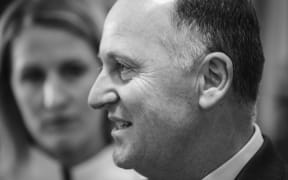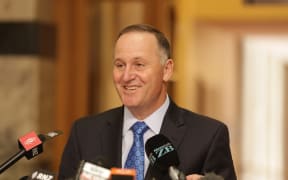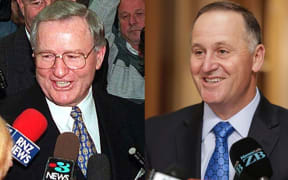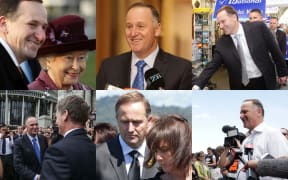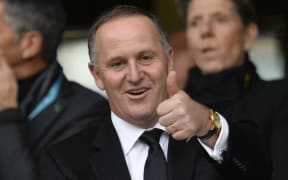John Key says he hates to "shatter everyone's illusions", but there was no scandal behind his decision to quit as prime minister late last year.
Mr Key will give his valedictory speech today, marking the end of eight years in the prime minister's chair, and said he would leave with no regrets.
He will leave Parliament for good on 14 April.
In a wide-ranging interview with RNZ, Mr Key talked about unfinished business, superannuation and the rumours that have been swirling about why he made the decision to leave.
"I hate to shatter everyone's illusion... There is no scandal," he said.
"I often say to people it's unusual because no one does it.
"It was a really hard call - I really sat there for about a year and thought long and hard and sometimes I'd say, 'Yes I'm going to do it,' and then two weeks later I'd think, 'Maybe I shouldn't do this.'"
After nearly a decade as leader he had "done everything, I'd been everywhere", Mr Key said.
"I just sort of felt I don't know whether it will look like I'm hanging on because I want the job, rather than because I believe I can make a difference."
Mr Key said he intended to accept the $51,000 per annum payment former prime ministers receive for the rest of their lives, though he did not know yet what he would do with it.
"Inevitably I'll either have some expenses or make some donations and things over time; I don't have a set plan for it at the moment."
People who had served in positions like prime minister and governor-general should get some financial support once they left their roles, he said.
"I don't say this purely as a matter of self-interest, but I think there's an argument we're not that generous.
"[Former Australian Prime Minister] John Howard has an office, he has staff, he still to this day has a driver and some kind of protection. That's true in Canada, that's true everywhere else."
Prime Minister Bill English has signalled the possibility of a knighthood for Mr Key in the Queen's Birthday honours list.
When he was sworn-in last year, Mr English quipped, "It's not as if he's never asked," when asked about a knighthood for his predecessor.
Yesterday, Mr English was hardly pouring cold water on the idea.
"He's been a very successful prime minister, others have been recognised, and I'm sure he will be."
One area in which Mr English quickly differentiated himself from Mr Key was by flagging an increase in the age of entitlement for superannuation - in 20 years' time.
Mr Key said it had been right for him as prime minister to stick to his guns and not change the age.
He did not feel there was any implied criticism of his own stance after Mr English changed the National Party's position, he said.
"Bill's always going to be a bit different from me and that's a really positive thing.
"To give you a golf analogy - we're all playing the same game but with a slightly different style and a slightly different swing."
The Kermadecs marine sanctuary and the flag referendum were two issues he thought he could have handled better.
The government is still negotiating with Māori over the proposed sanctuary and Mr Key said he was surprised by the response.
"We were just so convinced everyone would think it was a good idea we never, ever thought Māori would somehow think it was a bad idea."
Changing the flag was about trying to make New Zealand more successful and confident, he said.
He tried to present the campaign in a neutral way, he said.
"So yeah, it was a little bit disappointing."
National voters were more resistant to changing the flag but in the end they "closed their eyes" and backed him by voting for a change.
"But there were always going to be some people who found it a step too far for whatever reason, the history, the RSA position... and so in a lot of ways I really needed Labour and the Greens to want it."
Mr Key said he would be taking it pretty easy for the rest of the year, but was lining up some "blue chip" company boards to sit on.
He was in no rush to get back into a hectic professional lifestyle, he said.
"I'm in an unusual place for a former leader - normally they're either a little grizzly that they got kicked out or lost an election or something but because I did neither I kind of feel like a decade as National leader and eight years as prime minister, about the right time."
The transition had been "amazingly smooth" and he had 100 percent confidence in Bill English, he said.
"And I think you can see those numbers just rolling out of me, to Bill and into the party."
He did not wake up in the morning with any regrets, he said.
"I don't think, 'Oh gosh, I wish I was there,' but equally I don't wake up and think, 'I wish I hadn't been there.' I'm just really happy with what I've done."

